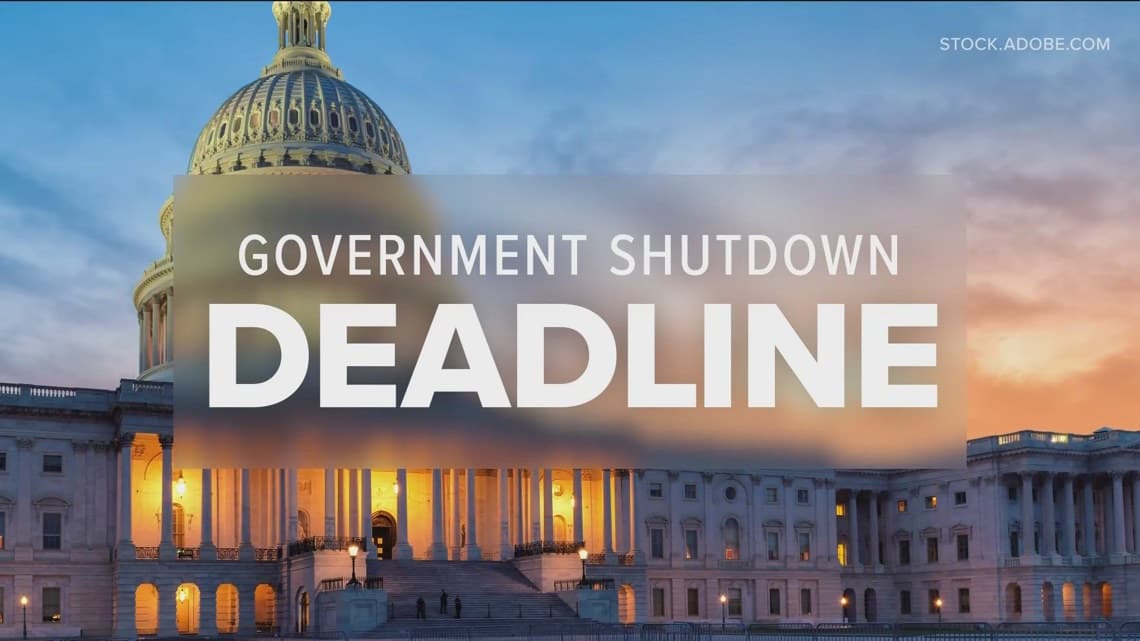Moderate Lawmakers Forge Shutdown Deal, Democrats Face Turmoil
A bipartisan accord led by centrist lawmakers and Senate Republicans ended the recent federal shutdown, but the truce has exposed deep fissures within the Democratic Party. The fallout promises to shape legislative strategy, public trust in governance, and the party's prospects in upcoming contests.
Listen to Article
Click play to generate audio

The government shutdown that shuttered federal operations for days concluded after a deal engineered largely by moderate lawmakers working with Senate Republicans. Panelists on Washington Week With The Atlantic discussed the mechanics of that bargain and its broader consequences, emphasizing that the resolution has revealed unease among Democrats that is now playing out in public.
The agreement reflected a pragmatic calculus by centrists who prioritized reopening government over maintaining party solidarity on spending priorities. By aligning with Republicans in the Senate, those moderates were able to clear a procedural path that more ideologically driven factions within their own caucus had resisted. The result was an expedient end to furloughs, delayed services, and uncertainty for federal workers, but also a political moment that left many Democrats feeling sidelined.
The visible frustration within the party, described by media observers including Nancy Cordes of CBS News, underscores a longer standing tension about how to balance governance with partisan commitments. Progressives and other activists have voiced anger in private, and the public airing of those tensions may complicate unified messaging for Democratic leaders. For now, the ceasefire has produced material relief for households and agencies affected by the shutdown. Yet the underlying disputes over spending priorities and negotiation tactics remain unresolved.
Beyond domestic politics, the shutdown and its resolution carry international reverberations. Periodic lapses in U.S. fiscal governance complicate relationships with allies and partners who rely on the predictability of American institutions for security cooperation, foreign assistance, and multinational economic planning. Diplomats and militaries operating abroad can face disruptions when funding is uncertain, while global markets track Washington for signs of policy instability. These patterns reinforce a perception problem for a country that often positions itself as a steadying force in world affairs.
Legislative experts on the program warned that the precedent of cross party short term fixes could reshape incentives for future budget fights. If moderates continue to broker deals that bypass party leadership, the institutional authority of caucus chiefs may diminish. That could yield more transactional governance, with a premium on compromise at the center and an elevated role for senators and representatives willing to break with senior strategists in pursuit of immediate solutions.
Voters, meanwhile, will judge whether those compromises produced tangible improvements or simply masked deeper dysfunction. For constituents affected by service interruptions the calculus is straightforward. For activists and ideological constituencies, the measure of success will be whether core priorities are defended in the long term.
As Washington moves past the shutdown, attention will turn to how party leaders restore cohesion and whether centrist deal making becomes a template or a flashpoint. Observers will be watching forthcoming budget negotiations and confirmations to see if the patterns that produced the most recent deal persist. The end of the shutdown brought relief, but it also crystallized a test for the Democratic Party about how to govern effectively while preserving ideological identity in a fractious era.

